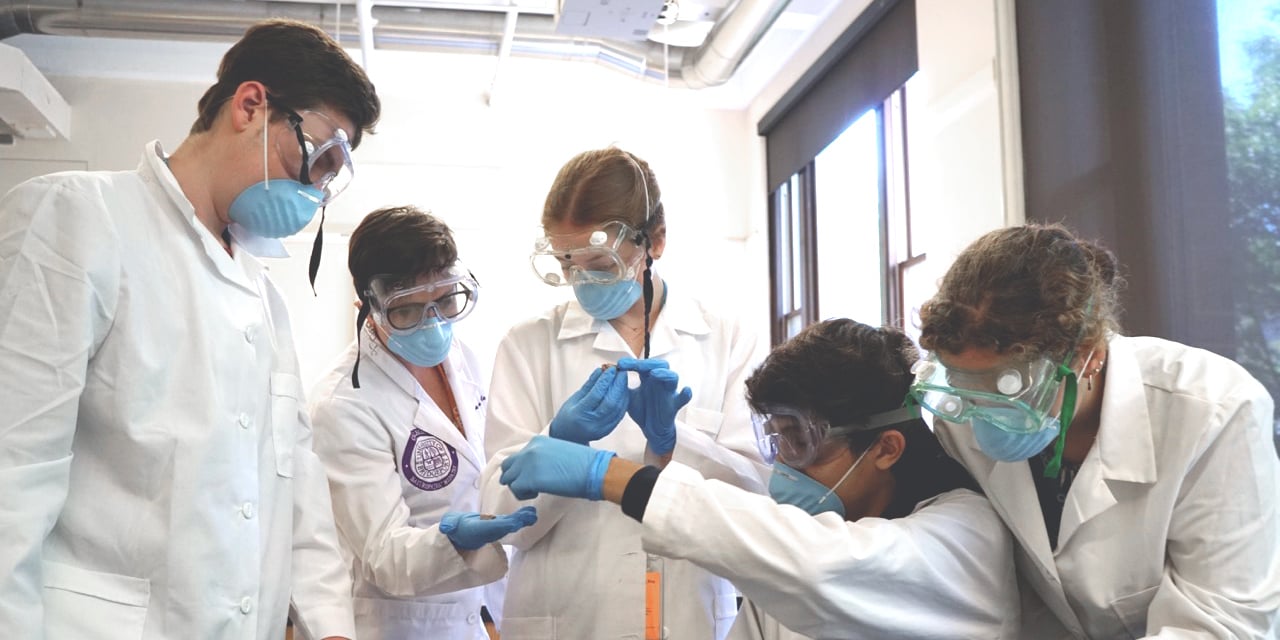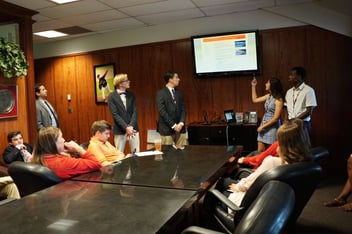Summer Camp Search Tips: What is the Best Staff-to-Student Ratio?

It’s human nature to want to reduce everything to numbers so that when we have to make a decision, we can compare our options side-by-side. Buying a new laptop? Just compare hard drive capacities. Want to know how efficient a car is? Just look at miles-per-gallon.
When we’re choosing summer camps for our children, it’s tempting to do the same thing. Many parents zero in on staff-to-student (or staff-to-camper) ratio as an indicator of the level of personal attention and care their child will receive at a camp. The more staff members per student, the more supervision children receive, the safer they will be.
That’s how the thinking goes, anyway.
But while staff-to-student ratio can be a starting point to help you formulate your questions about how a camp will care for, support, and encourage your child, this single metric rarely tells the full story.
Is There an Ideal Staff-to-Student Ratio?
We know you’re craving a number — who wouldn’t? — so let’s get this out of the way. All things being equal, which they almost never are, look for a staff-to-student ratio of at least 1:10. This is what the American Camp Association guidelines say:
If two camps say they have a staff-to-student ratio of 1:10, they may not be talking about the same thing.
“[O]vernight ratios of 1:6 for 7 to 8 years old campers, 1:8 for campers 9 to 14 years old, and 1:10 for campers 15-18 years old. Day camp ratios would be a little different. 1:8 for campers 6 to 8, 1:10 for those 9-14, and 1:12 for campers in the 15-18 age range.”
But if you compare camps solely on the staff-to-student ratio, you may be inadvertently comparing apples to oranges. If two camps say they have a staff-to-student ratio of 1:10, they may not be talking about the same thing. The question is, how do they define “staff”?
We’re not saying this to imply any deliberately misleading behavior on the part of any summer camp. But we are saying, if you dig deeper, you’ll learn more about the staff and community of a summer camp than a simple ratio can ever tell you.
As you research summer camps, tour campuses, and attend information sessions, here are a few questions to ask that go beyond staff-to-student ratio:
Who Are You Counting as a Staff Member?
It takes quite a few people playing quite a few roles to keep a summer camp running — an academic summer program, especially. We tend to think of instructors and counselors as summer camp staff, but there are also the people who prepare the food, the maintenance team, healthcare providers, administrators, office staff, and so on.
Reading the list in the previous paragraph, you may have noticed that not all these types of staff members remain on campus round-the-clock. An academic camp administrator may head home after the day’s programming is complete, for example. Food service personnel will leave after dinner and return to prepare breakfast.
Instructors, too, may not stick around after their classes. On the other hand, some educational summer camps follow a “boarding school model,” in which instructors are tightly integrated with residential life.
At camps such as EXPLO, educational staff members serve as residential advisors, coach athletics, and lead weekend trips. In other words, they get to know the campers much better than they would in a few hours of classes.
One of the main concerns parents have about staff-to-student ratio is how much supervision children receive. There are two elements to supervision:
- Monitoring children and preventing any behavior that should not occur.
- Supporting children, to make sure they’re settling in, forming positive relationships, and working toward their goals.
If you believe it’s essential for adults at a camp to get to know your child well, to notice when they’re unhappy or struggling, and to be on hand whenever your child needs guidance or advice, then be sure to ask how the camp defines “staff.”
How many members of the staff are there after hours? On weekends? How many are present in the dorms and actively involved in the life of the camp and the experiences of each individual student?
How are the Staff Members Trained and Supervised?
Just like at any workplace, staff members at a summer camp perform better when more experienced senior staff show them the ropes. Working at a summer camp is not necessarily easy. It takes special skill and patience to learn to relate to young people and help them get the most out of their time at camp.
Supervision is just as crucial for staff as it is for campers. If the camp employs younger staff members — high schoolers, for example — those staff members won’t be effective unless they’re overseen and mentored by older adults.
Ask about how a camp trains and monitors its staff. How are staff members prepared for the summer? Who do they report to and how often do they check in? And are high schoolers and staff-in-training counted in the staff-to-student ratio?
What Kind of Community Are You Trying to Build?
More significant than staff-to-student ratio is the makeup of a camp’s community.
Some academic summer camps strive to emulate the college campuses on which they’re situated. But the risk of that approach is in having instructors that are out of touch with the campers. They don’t eat with them; they don’t go on trips with them; they don’t play games with them.
A summer camp experience is truly transformative when the entire camp community is committed to the same goals and works together to achieve them.
The flipside is residential advisors who don’t see themselves as educators. Their main job is making sure the campers are in bed by lights out.
A summer camp experience is truly transformative when the entire camp community is committed to the same goals and works together to achieve them.
Here at EXPLO, we aim to build a community that supports our students as they recognize their full potential through exploration, experimentation, taking on challenges collaboratively and creatively, and trying new things every day.
We know transformation doesn’t just happen in the classroom. It can happen on the playing field, in the dorm, at meals, and just hanging out on the quad. Our staff members are there every step of the way.
Looking for the perfect educational summer camp, but not sure where to start? Look no further, and read our new guide:"10 Steps to Find the Perfect Educational Summer Camp."



